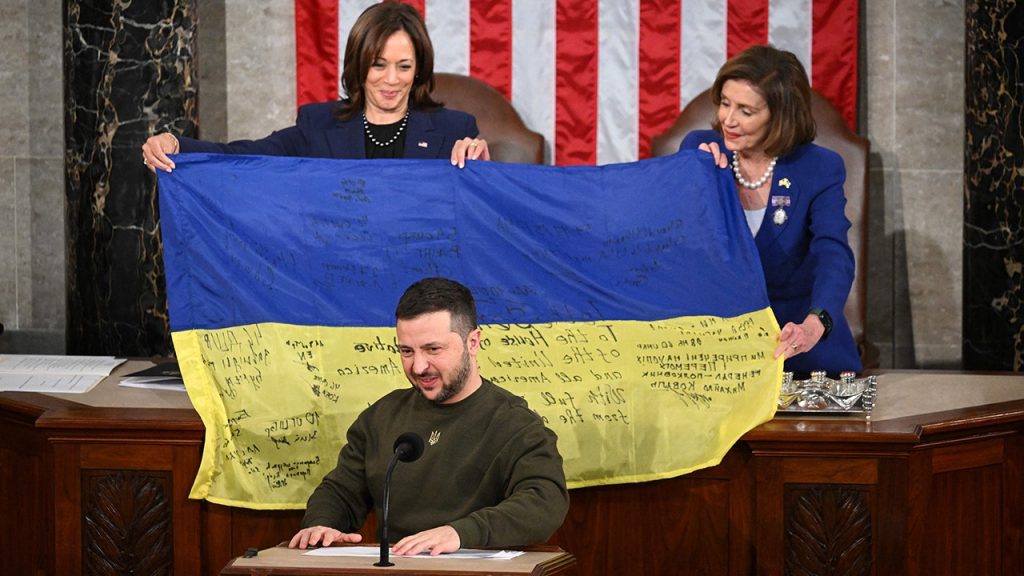Washington, D.C., plays a role in choosing the U.S.’s wars, as seen with the decision to provide $62 billion for Ukraine to fight Russia, with bipartisan support. The House and Senate eventually approved this aid, but only after significant pushback and lobbying efforts from leaders like Mitch McConnell. The U.S. has a history of involving itself in conflicts overseas, such as the Iran-Contra Affair in the 1980s, demonstrating how Washington picks fights to advance its interests in different regions.
The decision to go to war in Iraq in 2003 was another example of Washington involving itself in overseas conflicts, with Congress approving the operation. However, there is now a divide within Congress on this issue, with Senator J.D. Vance speaking out against U.S. involvement in Ukraine due to his experience during the Iraq War and feeling that America’s leaders have misled the public in the past. Despite this opposition, the U.S. remains committed to assisting Ukraine in its conflict with Russia.
The foreign aid package also includes money for Israel, another conflict in which the U.S. has involved itself. Congressional Republicans were more supportive of providing aid to Israel, while some liberals like Bernie Sanders and Cori Bush opposed this decision. There is ongoing debate and criticism over the U.S.’s involvement in conflicts like the one between Israel and Palestine, with disagreements over the impact of American aid on the situation in the region.
Mitch McConnell played a key role in advocating for the foreign aid package and has been a strong supporter of American leadership in global conflicts. McConnell emphasized the importance of recognizing responsible ideas in American leadership and the need for serious conversations about national security. Despite resistance from some quarters, the aid package’s approval reflects a shift away from isolationist tendencies and towards more active global engagement by the U.S.
The comparison to World War II and the U.S.’s initial reluctance to get involved in the conflict highlights the consequences of inaction in the face of aggressive regimes like Adolph Hitler’s. Leaders like Churchill made impassioned pleas to the U.S. to join the war effort, ultimately leading to American intervention. The U.S. has a history of choosing its wars, and decisions regarding conflicts in Ukraine and Israel will be judged by history in terms of their impacts and wisdom.
The ongoing debates and divisions in Congress reflect broader disagreements about U.S. foreign policy and the role America should play in global conflicts. While leaders like McConnell and Schumer have emphasized the importance of American leadership and engagement in conflicts like Ukraine and Israel, there are differing opinions within Congress and the public about the best approach to these situations. Ultimately, the decisions made by American leaders on these issues will shape the country’s role in global affairs and its legacy in history.


